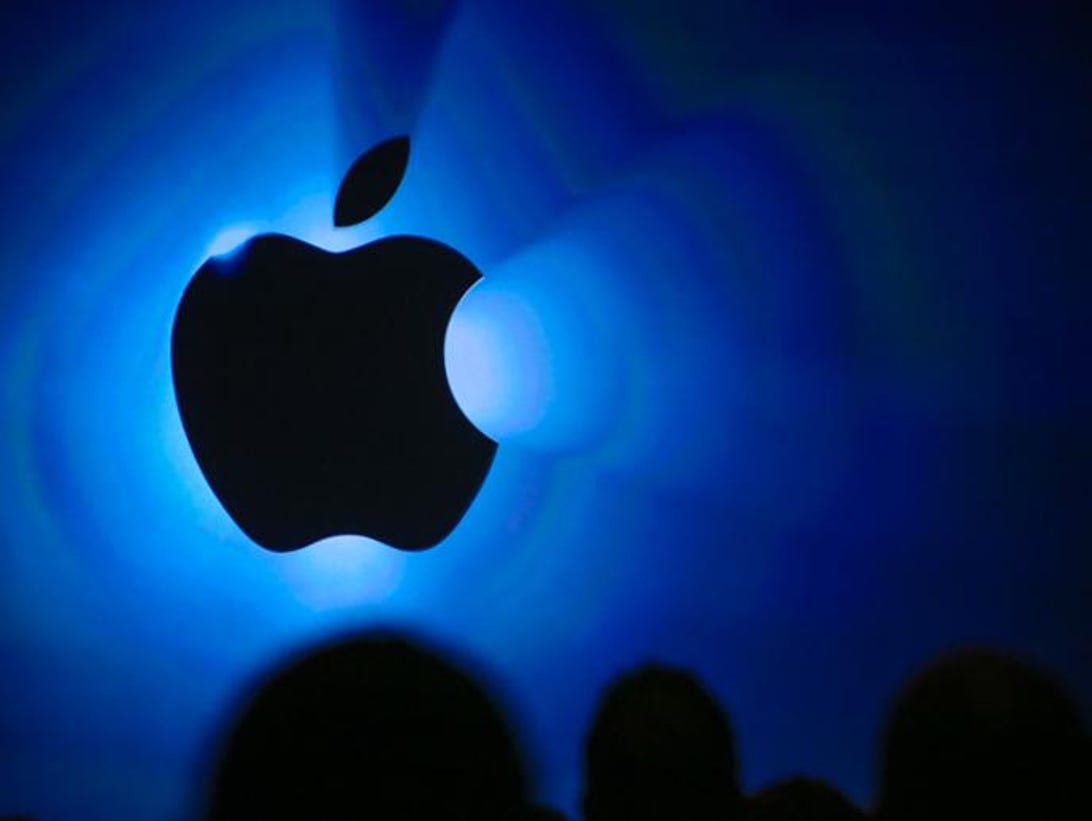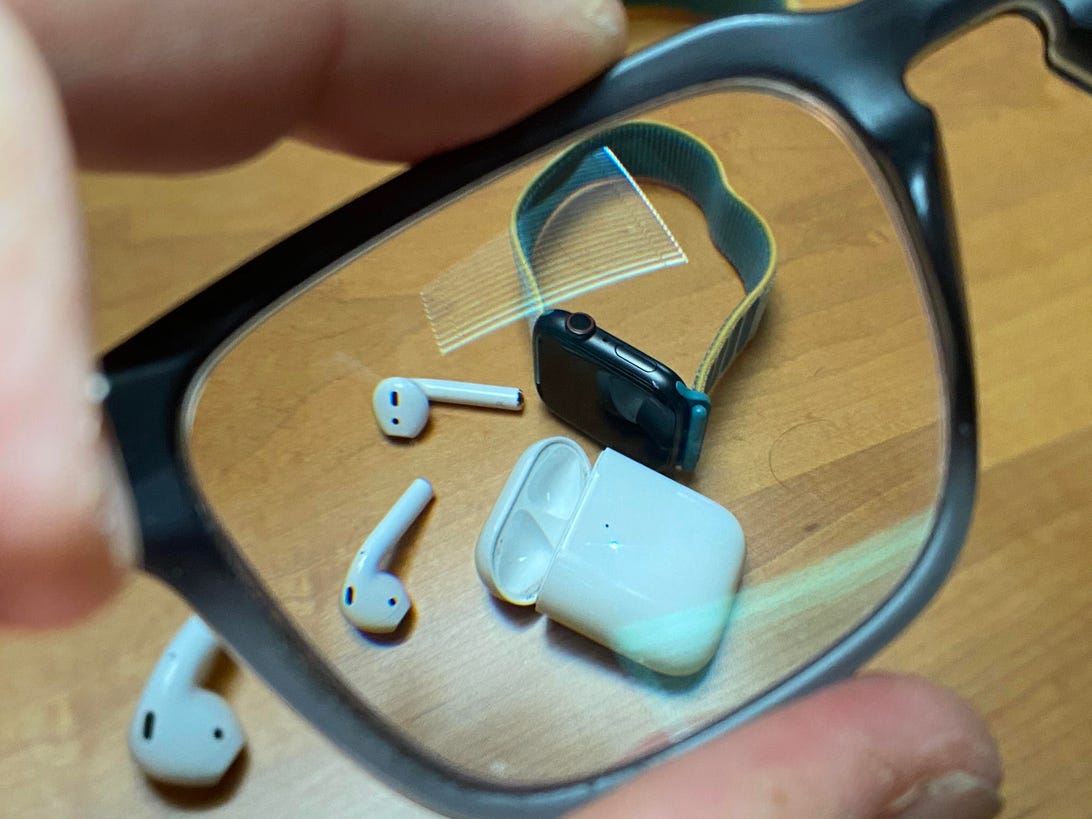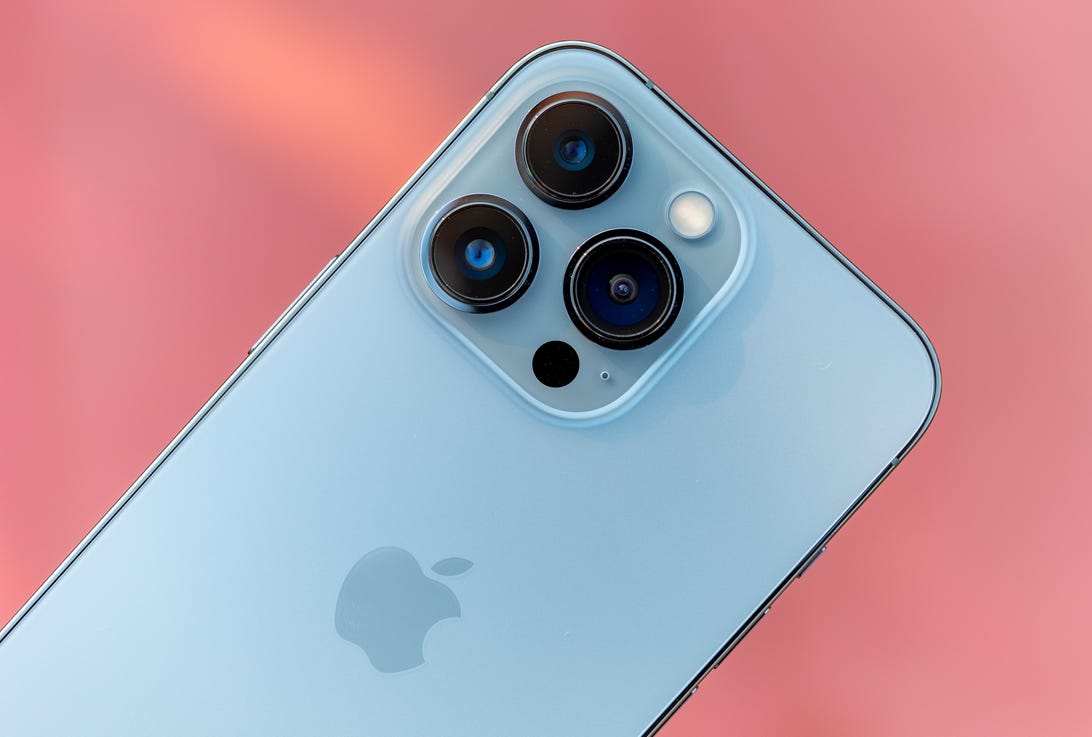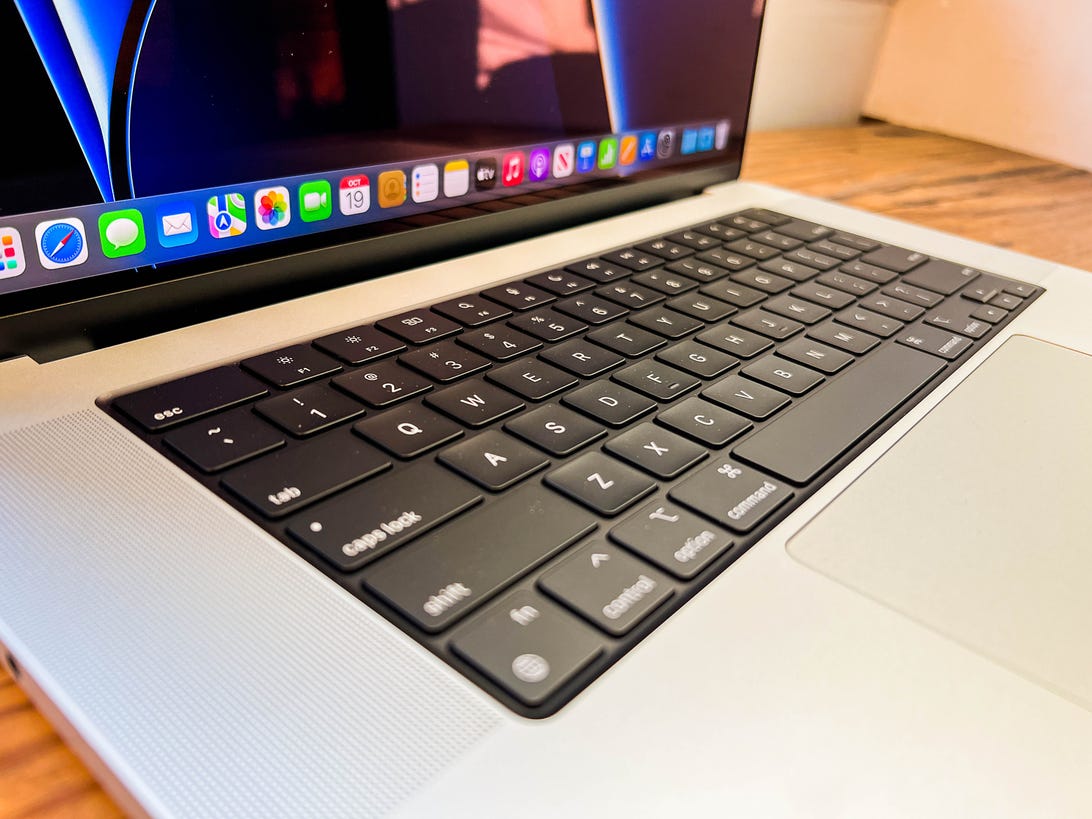
Apple's gearing up for some big changes in 2022.
James Martin/CNETGet ready for the hype train, because it's preparing to head to Cupertino (again).
Next year is shaping up to be a busy one for Apple, if rumors are to be believed, filled with new technology that may be on par with tentpole moments like the first Macintosh introduction in 1984, the first iMac in 1999 or the iPhone in 2007.
This time, the key item will stretch Apple into a new territory: AR/VR glasses.
This project, one of Apple's most ambitious in years, is rumored to encompass augmented reality and virtual reality. AR overlays computer information on images of the real world, while VR places a screen so close to your eyes that your brain is tricked into thinking you've been transported to a computer-generated world. It's like the difference between Microsoft's $3,500 HoloLens and Meta's $299 Quest. HoloLens is being used to help technicians in the field share information as they're doing inspections and repairs at oil giant Chevron. Quest, meanwhile, is known for its hit immersive games and experiences, like the time-bending puzzle game Superhot and the action game Star Wars: Vader Immortal.
Most of the leaks and rumors have focused on the headset's specs, such as its ultra-fast wireless networking and the super-detailed visuals a source told CNET it's expected to have. But many questions still surround Apple's headset, beginning with its name – maybe iGlass?
Its release date is a mystery as well. It was said at one point to be slated for 2020 but now has been pushed to next year, according to sources who spoke to Bloomberg and other analysts. And we still don't know what using iGlass will be like and whether it'll be sold as somewhat of an accessory, like the Apple Watch and AirPods.
Analysts and industry experts say Apple's sleek software, combined with the App Store and online services like the music streamer Spotify, help keep the company ahead of its rivals.
"The reason everyone always looks to Apple is yes, there's the well-designed hardware, but there's also the power of the app ecosystem," said Carolina Milanesi, an analyst at Creative Strategies.
As if releasing a new product line isn't enough, Apple's likely got other major updates in its pipeline as well. The company's said to be working on next-generation chips for its Mac computers, a highly anticipated redesign of its popular MacBook Air and Mac Pro professional desktop computer, and a new look for an upcoming iPhone 14 as well.
But it'll be the iGlass that likely gets the most attention as one of the company's most important product launches in years. Apple's success with new products has largely come from their connection to the iPhone, analysts say, noting that the iPad tablet benefited from the existing App Store when it arrived in 2010. Further, the Apple Watch and AirPods were sold as iPhone accessories when they went on sale in 2015 and 2016.

Taking a look at Apple's existing wearable devices could point to where Apple Glasses are heading.
Scott Stein/CNETThe iGlass will likely spark many questions about the future of VR and AR and how it will fit into our lives. Meta CEO Mark Zuckerberg has sunk untold billions into his Reality Labs efforts, such as the Oculus VR headset company he bought for as much as $3 billion in 2014. That effort's still around, but the industry is littered with much-hyped startups like Magic Leap, whose highly anticipated AR glasses struggled so badly after its 2018 launch that two years later, in 2020, the company announced layoffs and its founding CEO resigned.
The iGlass will represent more for Apple than trying its hand at a new product category. Many analysts and executives believe headworn technology will reshape the tech industry when it eventually catches on. And for Apple, which relies on the iPhone to make up about half its revenue, iGlass may also finally answer the question of whether Apple can find the next big thing – again.
"I wouldn't look at Apple as much with the hardware, but what's the software ecosystem?" said Joost van Dreunen, a professor at NYU Stern School of Business and author of the book One Up: Creativity, Competition, and the Global Business of Video Games. A longtime skeptic of the VR world, van Dreunen said that attending Zoom funerals and children's birthday parties in the world-building game Roblox has begun changing his mind. And, he noted, Apple is known for convincing app developers to get involved with the next big thing. "If anyone can do it, it's Apple."

The coronavirus has upended life around the globe.
James Martin/CNETCoronavirus question mark
Apple doesn't just have competitors like Zuckerberg to worry about when it comes to the iGlass. If it sticks to a next-year launch, it will be doing so in the middle of the COVID-19 pandemic. The virus has wreaked havoc across the globe, killing more than 5.3 million people.
One of the most impacted industries has been global trade, with manufacturers struggling to keep enough people working in plants and shipping facilities to make enough stuff for all of us. Even Apple, which seemed to avoid the pervasive supply shortages that hit much of the tech industry last year, said it couldn't make enough chips for its iPhones and iPads to meet demand this holiday season.
"It's difficult to predict COVID," Apple CEO Tim Cook told analysts during an October earnings conference call. He'd also said supply constraints amounted to $6 billion in lost sales at a time when demand for his company's products was at all-time highs. But he said Apple's still in a "materially better" position than it was earlier in the pandemic.
Still, the COVID-19 pandemic could have impacts far beyond the supply chain. Its arrival also accelerated significant changes to our work culture, economists say, pushing aging baby boomers into retirement at a faster rate than before, while also inspiring employees to demand more flexible work options. That caused a debate at Apple.
Employees at the tech giant took an unusual step this year, speaking out publicly about how Apple's hyper-secretive work culture is unintentionally ruining some people's lives. Employees spoke both of a sometimes toxic work environment and of unforgiving expectations put on those caring for families amid the pandemic. Many employees reportedly asked to remain mostly remote, going so far as to sign several open letters to Cook. The company's leadership, meanwhile, argued that employees needed to return to the office as soon as it's safe.
"For all that we've been able to achieve while many of us have been separated, the truth is that there has been something essential missing from this past year: each other," Cook wrote in the email sent to staff this summer. "Video conference calling has narrowed the distance between us, to be sure, but there are things it simply cannot replicate."
The debate still hasn't been resolved, though the stalemate was somewhat pushed aside by a resurgence of COVID. The omicron variant, which emerged this fall, has spread so rapidly across the globe that Apple has put off its return-to-office plans indefinitely.

Apple's iPhone 13 earned positive reviews after its launch this fall, particularly for its battery life.
Stephen Shankland/CNETNext steps
Among Apple's other products planned for the year are a redesigned iPhone 14, which reportedly will finally lose its sensor notch by the earpiece. Apple shrunk it with the iPhone 13 but still relied on the cutout for its Face ID sensors and front-facing camera.
Apple's also expected to introduce new Mac computers, powered by updated iterations of M-series chips designed by the team that also makes the microprocessing brains that have powered iPhones and iPads over the last decade. So far, Apple's M1, M1 Pro and M1 Max chips, each designed to replace competing technology made by Intel, have been well received.
When CNET reviewer Dan Ackerman tested Apple's newest Mac laptops in October and used them to edit together large video files, he found they performed the tasks in less than half the time of their predecessors. "You can see a real performance difference there," he said.

Apple's redesigned MacBook Pros drew praise from reviewers for their speedy chips, better battery life and added plugin ports.
Dan Ackerman/CNETNow that Apple's proven it can make the M-series chips competitive, its next challenge will be delivering meaningful upgrades over the next couple of years. "Apple's caused a lot of ruckus and fear and concern among traditional tech players," said Bob O'Donnell, an analyst at Technalysis Research. "Maintaining that excitement is harder."
After Apple added its desktop-class M1 chip to the iPad Pro last year, O'Donnell wondered where else the tech giant might be planning to use its newest chips, perhaps even in the upcoming iGlass.
"It suggests they're thinking differently about this," he said.
Article From & Read More ( Apple's next big act after the iPhone may come in 2022 - CNET )https://ift.tt/33KWVOZ
Tecnology
Bagikan Berita Ini














0 Response to "Apple's next big act after the iPhone may come in 2022 - CNET"
Post a Comment